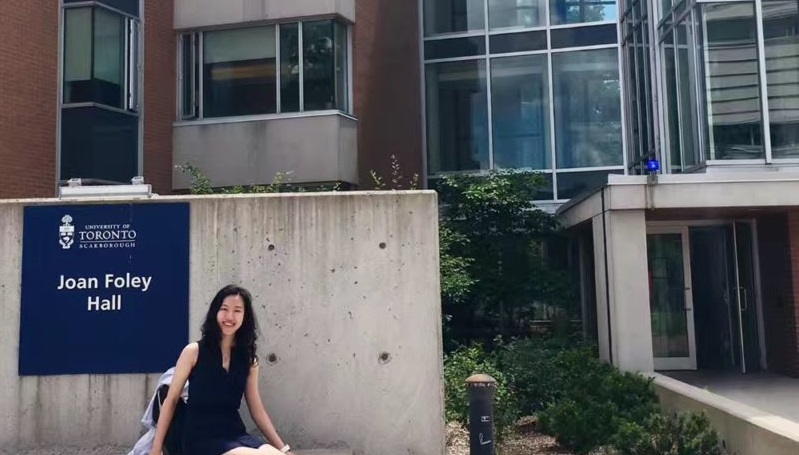Hello, everyone! I am Kexin (Lindy) Zhu. Currently, I study psychology and mental health at the University of Toronto in Scarborough campus (UTSC). I plan to specialize in the mental health coop program next year. I’m very excited to share my university life with you guys. In this article, I will talk about two things, the way to choose courses and some university’s resources which can help you to study better.
Usually, enrolment for the following fall term courses happens during summer time. For example, if you are registered for the fall term in 2018, you need to choose courses in advance in June, July or August. Generally, the calendar on a university’s official website can tell you both required courses and elective courses for your major. Sometimes, it also includes the required GPA for first year students. A lot of you guys may be curious about whether there are some easy courses, also known as “water courses” in mandarin to boost up the GPA. According to my experience, some upper year students are willing to share their experience with you. However, it’s very important to notice that even in the same course, the course materials and the levels of exams will change because of students’ feedback in the previous year. I chose a water course called Introduction to Media Studies. It’s been a famous easy course in my campus for years. Unfortunately, last year, a student wrote to the professor that the course was too easy and he or she learned nothing. After that, the course has become more difficult this year. The next question is whether U of T is as hard as everyone says it is. According to U of T official statistics, despite the fact that approximately 30% of U of T students had an average of 95% or higher out of their top four grade 12 courses, the average grade for first-year courses at U of T is 68%. Obviously, the workload in university is much harder than in high school. Besides, evaluation is also stricter. One of my professors said that doing ok is just a C in university. In order to get an A, your work needs to be really excellent. However, it doesn’t mean that we are going to die at U of T.
The university definitely provides some useful services. The most well-known one is the writing center. The instructors there can help students to revise their compositions from a variety of perspectives, including citation, grammar and flow, outline and so on. More importantly, the English Language Development Centre (ELDC) offers special programs. For example, in September, I attended a seven-week program called Reading and Writing Excellence (RWE). In the program, I was required to read academic texts for at least 40 minutes a day and then spend 20 minutes writing a journal by using critical thinking. An instructor in the program provided some feedback three times a week. Besides, the instructor and I had a one-on-one meeting every two weeks. The program really helped me to adapt to university writing at the beginning of the term. In addition, the fee for the RWE program is free since it’s included in my expensive tuition. The manager of the program said that students should attend this kind of program, otherwise they are paying for others to have a better grade. I agree with her. She is completely right.
I would like to say that my university life is bittersweet. The above is just my own experience and suggestions. To be honest, the best way to figure out what university life looks like is to experience it by yourself.
